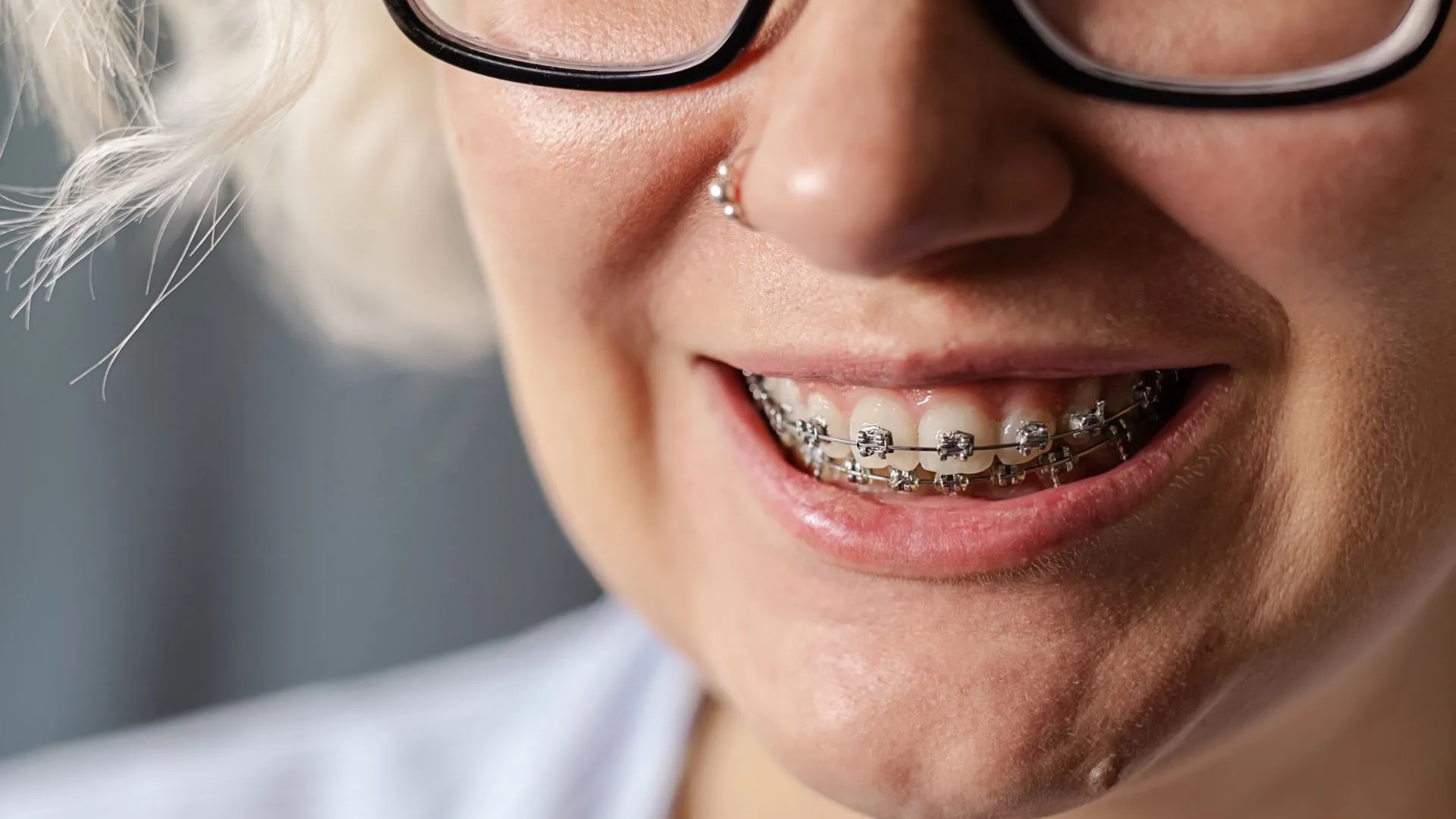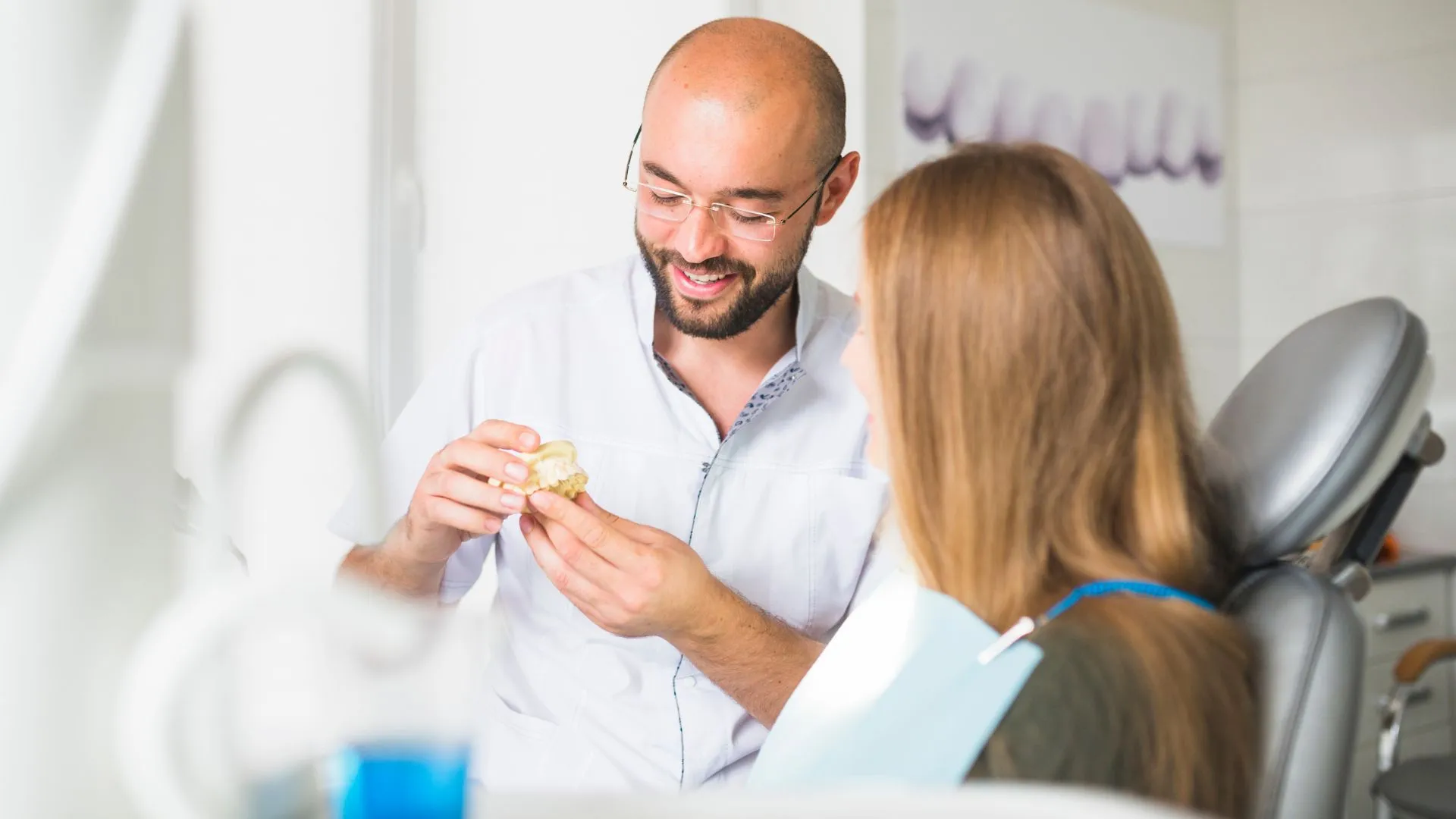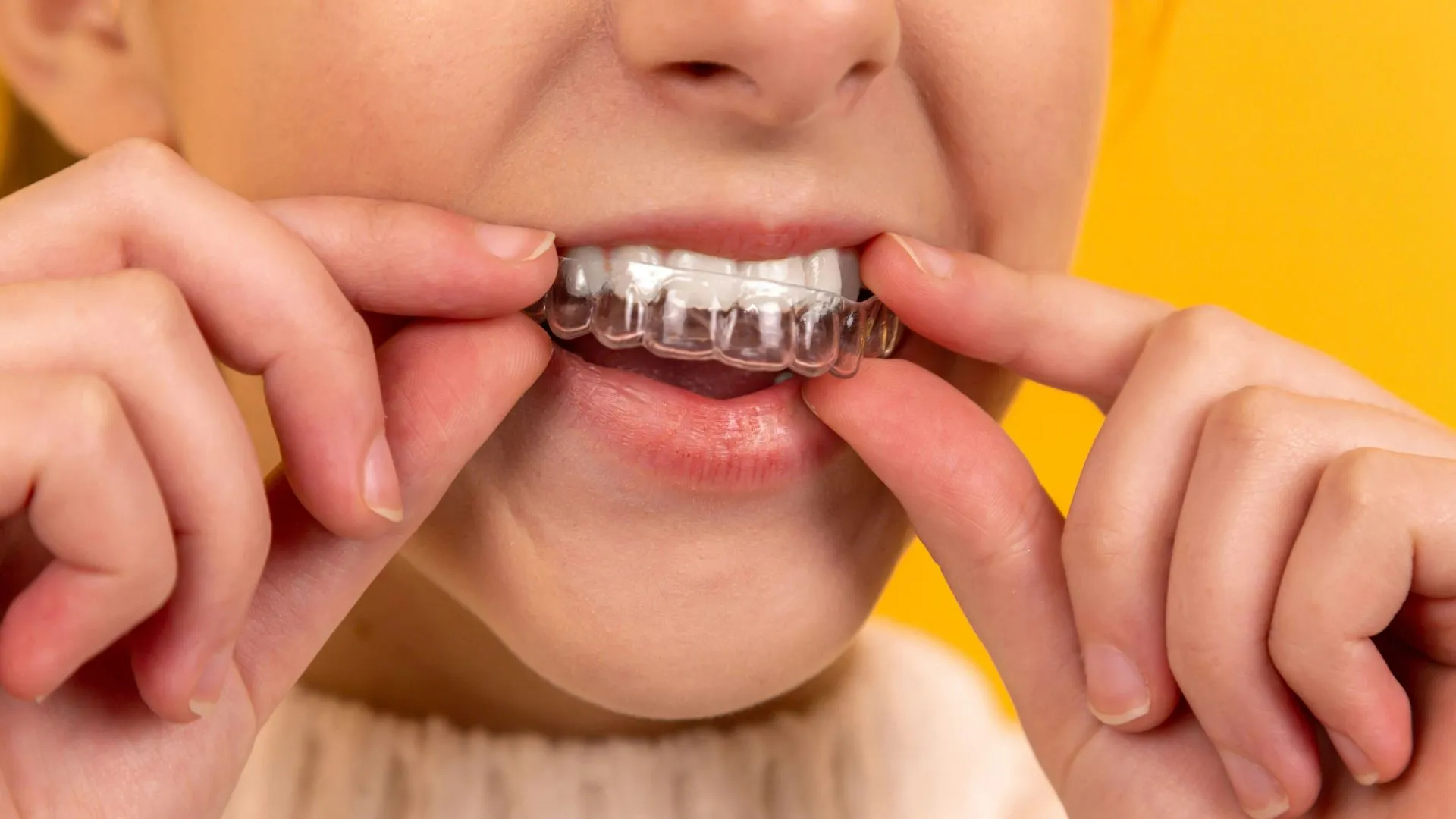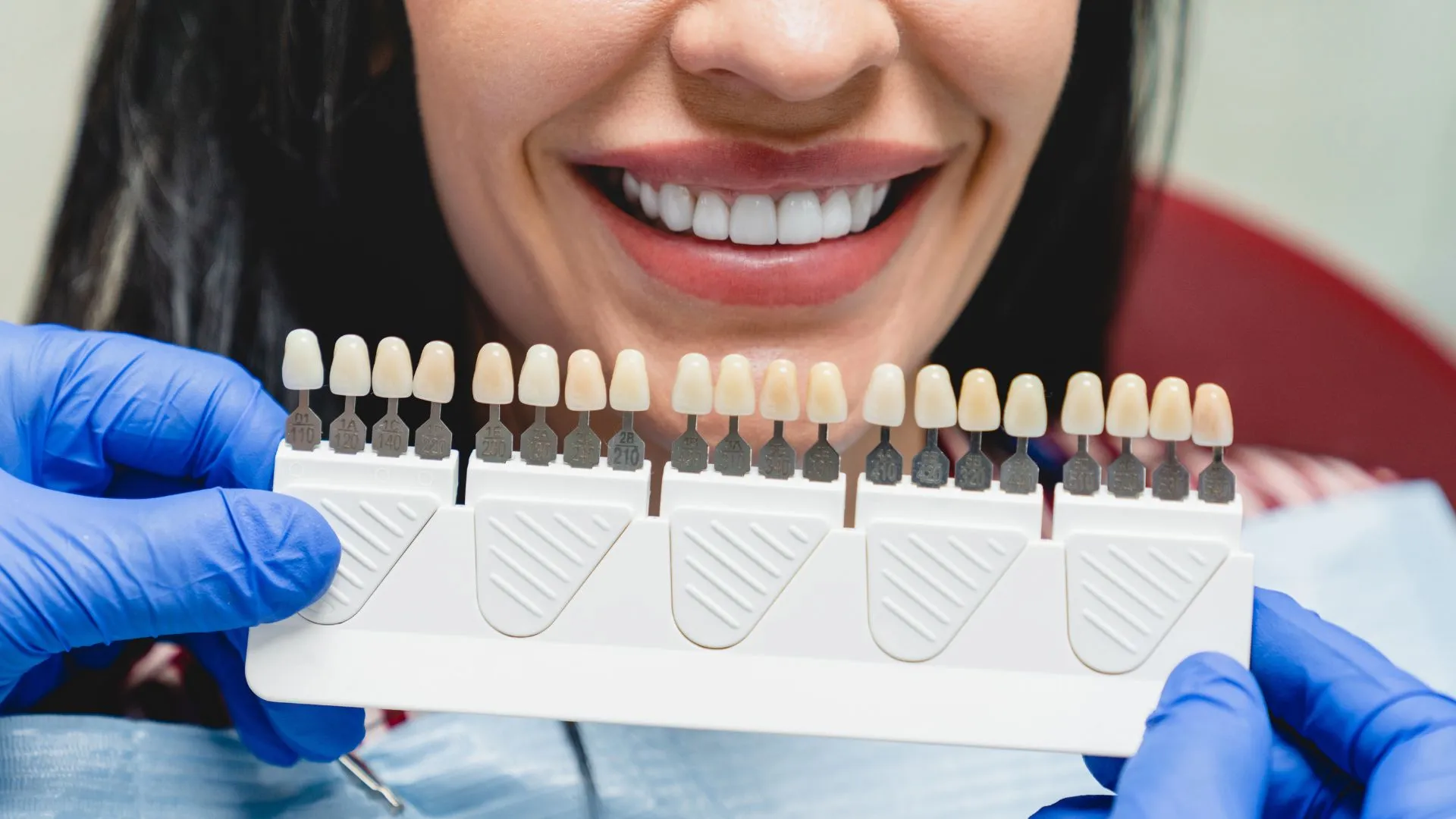As an adult, when you think of orthodontic braces, you probably think of the acne-covered 13-year-olds with metal brackets in their mouth back when you were younger. But are braces really limited to teens? Can you be too old for braces?
As an adult, when you think of orthodontic braces, you probably think of the acne-covered 13-year-olds with metal brackets in their mouth back when you were younger. But are braces really limited to teens? Can you be too old for braces?
Luckily, the answer is no. In fact, one in four orthodontic patients in the United States each year are adults looking to correct misaligned teeth and improve oral health. At Image Dental, we realize you may have questions regarding cosmetic dentistry and adult orthodontics. We are here to help you navigate your possible orthodontic treatment options.
How do braces work?
Whether you opt for traditional braces or clear aligners, orthodontic appliances work by placing gentle, controlled forces on your teeth. This force gently presses on the tooth root, causing the underlying alveolar bone to dissolve, allowing teeth to move into their new position. As the tooth moves, new bone begins growing to prevent the tooth from moving back into its previous position. Once your teeth are in a new position, your dentist will have you wear a retainer to hold the teeth in place and allow for the completion of new bone growth, locking your teeth into their new position.

Why adults get braces?
Braces and other orthodontic appliances aren’t just for kids and teens anymore. Orthodontic treatment can move teeth at any time and age, making it a popular treatment option many adults are now turning to. But why would adults need braces? You have lived with misaligned teeth for years, so are braces necessary?
The truth is there are many different reasons to opt for braces and orthodontic care as an adult. These reasons can include:
- Financial ability: For many, orthodontic treatment was not a financial option for their parents, despite the need. Costs have significantly decreased over the years, and, as an adult, you are able to afford orthodontic treatment.
- Reduce dental issues: Living with misaligned teeth and an incorrect bite is possible, but it can contribute to dental health issues, such as increased plaque buildup and the inability to remove plaque with regular brushing and flossing. In addition, misaligned teeth can increase the risk of teeth grinding and clenching, which can cause excessive wear and damage to your teeth.
- Reduced health issues: Misaligned teeth not only contribute to dental issues but can also affect your health. Bite problems can contribute to chronic headaches, neck pain, ear pain, muscle pain, and muscle soreness.
- Improved appearance and smile: When your teeth are misaligned, you often hide your smile and feel self-conscious. Braces are a way to give you a beautiful smile you desire.
- Failed previous orthodontic treatment: Did you have braces as a teenager but refused to wear your retainer? This is a common problem with orthodontic treatments in children. Unfortunately, when you do not wear your retainer after braces, you risk your teeth returning to a misaligned position. Many adults opt for braces a second time around but, this time, wear their retainer.
Benefits of orthodontic treatments
While most people think the main benefit of getting braces or other orthodontic appliances is an improved smile, the truth is that cosmetic change is just the beginning. There are many beneficial reasons to get braces as an adult, including:
- Bad breath reduction: Misaligned teeth can make it easier for bacteria and plaque to buildup, contributing to bad breath. Fixing crooked or overcrowded teeth makes it easier to maintain good oral hygiene.
- Reduce oral health risks: While crowded and crooked teeth contribute to bad breath, they can also contribute to more serious oral concerns. When bacteria and plaque build-up, you are at greater risk of tooth decay, gum disease, and even tooth loss. Fixing misalignments make it easier to maintain good oral health.
- Improved rating and digestion: Misaligned teeth can often reduce your ability to chew food properly. You may pass on that delicious steak and opt for a softer, easier-to-eat food in many cases. If you do opt for that steak, chances are you won’t be able to chew it into small enough pieces, making it difficult for your stomach to digest. Fixing your bite makes chewing easier, allowing you to eat the foods you love and give your stomach a break from digestive issues.
- Save money on dental treatments: While braces can be a costly investment, the truth is they are likely to save you time and money throughout your life. By improving your alignment and making it easier to practice good oral hygiene, you reduce your need for potential costly dental treatments, such as fillings, root canals, and even dental implants if you lose a tooth.
Challenges of getting adult braces
While you can still get braces as an adult, it does not come without challenges. As a child or teen, your jaw was still growing, and chances are you didn’t have much dental work. As an adult, you have had a lifetime of previous dental work, and your jaw has stopped growing. When it comes to braces, this can mean complications when trying to move teeth. Previous dental work, such as root canals, can make it difficult. Oral surgery may be necessary to achieve your desired results. In addition, movement can often be slower in adults because of maturity and bone density, taking more time to achieve your desired outcome.

How to choose the right type of braces
When you decide to straighten your smile with orthodontic treatments, you will need to talk with your orthodontist about which treatment option is best for you. While many adults often want to go with clear aligners, they are not always an option. Which treatment will work best for you will depend on your dental concerns.
Traditional braces
Traditional braces have brackets that adhere to the surface of your teeth and are connected with thin wires. In order to move your teeth, your orthodontist tightens the wires slowly. Traditional brackets are metal, but you can also opt for ceramic braces or lingual braces that connect on the back of the teeth. Traditional braces work for just about any dental concern, while lingual braces will not treat conditions such as a deep overbite. Because the brackets are fixed to your teeth, you will need to use caution with certain foods. Treatment for adults can take up to three years, with the brackets staying in place for that time.
Clear aligners
Clear aligners, such as Invisalign, are removable braces that slip over your teeth. Every few weeks, you receive new aligners designed to slowly shift your teeth into their new position. In addition to being nearly invisible, these aligners can be removed when you eat, allowing you to avoid any food restrictions. Unfortunately, clear aligners are not a good option for severe overbites or teeth that are too rotated or too short.
Can you be too old for braces?
Braces, whether traditional or clear aligners, are beneficial at any age. While treatment as an adult can take a little longer, your overall oral health will benefit from properly aligned teeth. If you would like to learn more about cosmetic dentistry and how braces can give you the smile you have always wanted, contact Image Dental online or call our office at (209) 955-1500 today to schedule a consultation.



